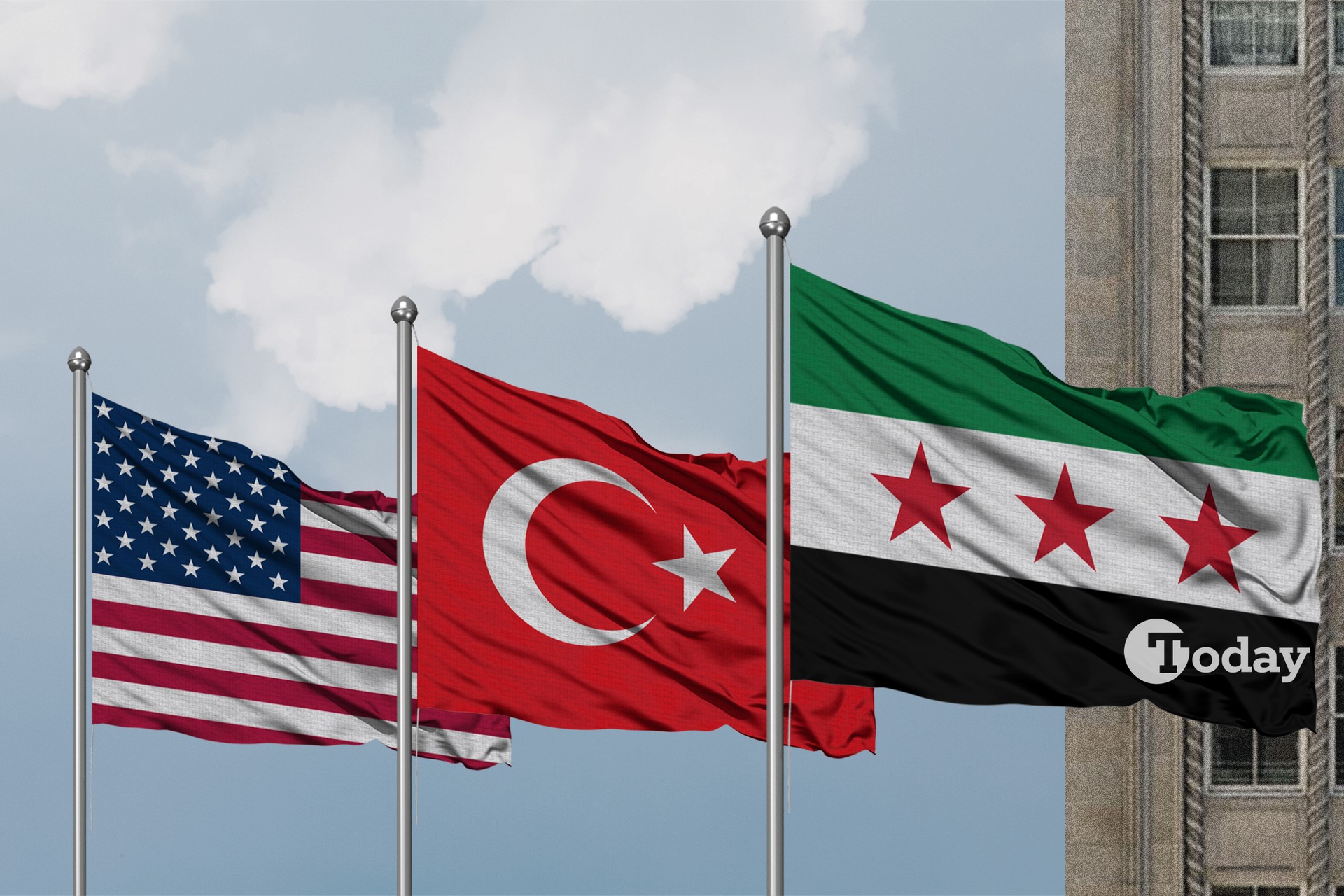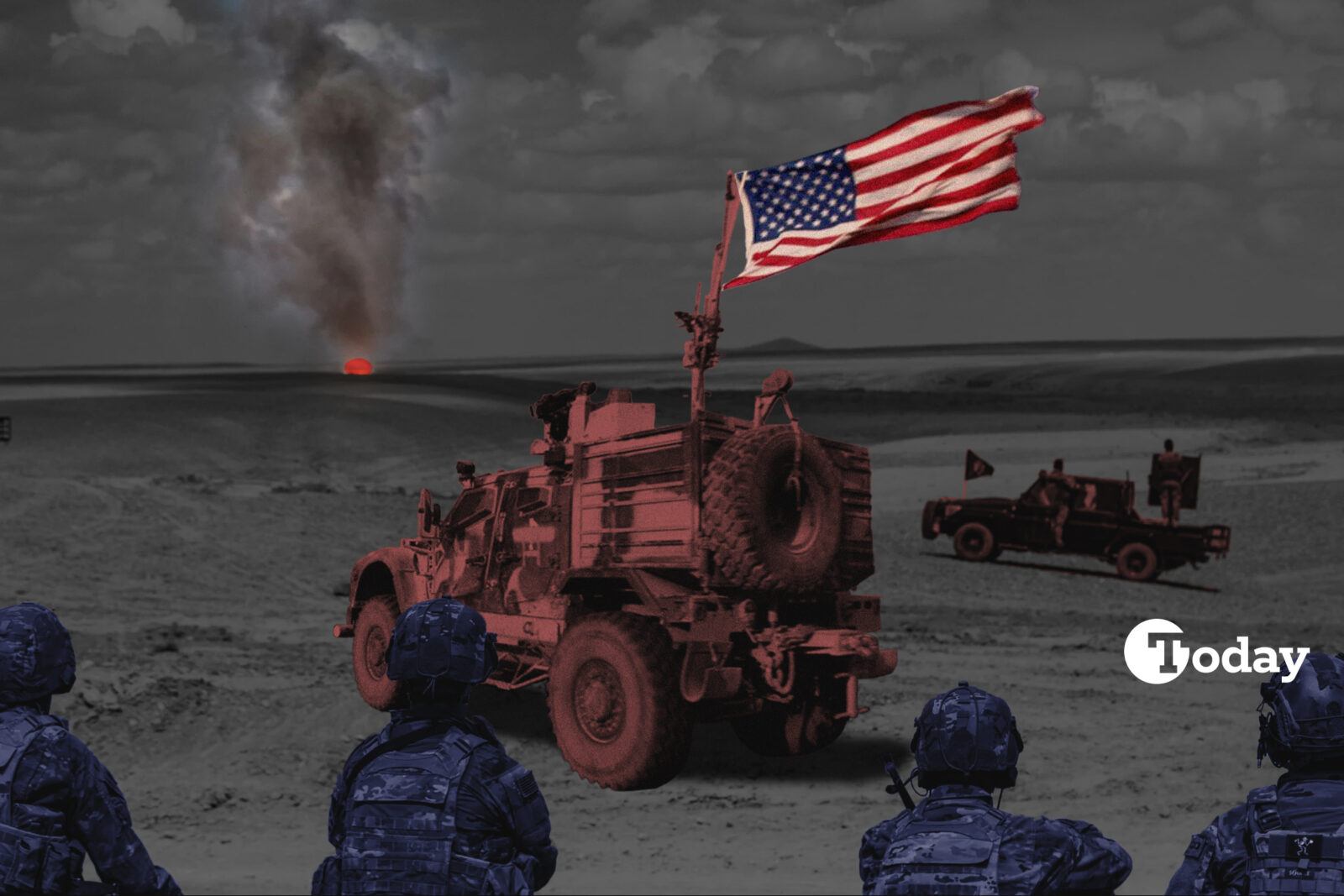
Regional dynamics, including protests in areas like Raqqa, Deir ez-Zor and Hassakeh, highlight growing dissatisfaction among Arab communities under the control of the SDF. The developments have amplified calls for the group to dissolve and for the U.S. to reassess its long-term role in the region.
Ankara demands that Washington halt its support for its chosen partners in northeast Syria, the Democratic Union Party (PYD) and its armed People’s Defense Units (YPG), both offshoots of the transnational terrorist-designated PKK that has waged an armed campaign against Türkiye for more than forty years.
However, these groups represent the elements of the U.S.-backed "Democratic Autonomous Administration of North and East Syria" (DAANES) and its YPG military units are crucial in keeping Syrian petroleum resources, with the fight against the Daesh terrorist group remaining the official justification.
Reports and eyewitness accounts suggest that tribal Arab populations, deeply rooted in the region’s social fabric, have started arming themselves in response to alleged incidents of forces opening fire on civilians. The unrest is raising serious security concerns for the fewer than 1,000 U.S. troops still stationed in Syria. Pressure from Republican lawmakers and the party’s base, eager to avoid endangering American forces, has intensified the urgency in Washington as well.
The fragility of the YPG's standing underscores the importance of carefully adopting to these rapidly changing dynamics to avoid jeopardizing U.S. interests.
While the YPG was instrumental in combating Daesh, it is worth noting that Iranian-backed IRGC forces also fought against the global terrorist group Daesh in Syria, which did not automatically make them U.S. allies. With Daesh/ISIS no longer posing a significant threat, provided that YPG-controlled prisons continue to detain Daesh militants, the justification for U.S. involvement has waned. This opens the door for a potential policy shift under Trump. After all, it was the Obama administration that initially pivoted to supporting the YPG/PKK which rebranded itself as SDF, and there may be little incentive for Trump to continue carrying the political burden of that decision.
Türkiye Today spoke with expert Qutaiba Idlibi, a senior fellow at the Atlantic Council and founding board member of the Syrian-led political and civil initiative Madaniya Network. Idlibi highlighted the political opportunity the situation presents, stating, "The argument for continued U.S. military presence is becoming less compelling, especially as Iranian militias are no longer a significant factor in Syria."

The relationship between the U.S. and Türkiye could see a reset under new leadership in Washington. The rapport previously established between President-elect Donald Trump and President Recep Tayyip Erdogan may facilitate more constructive engagement on contentious issues, including Syria, countering Russian influence, and regional stability.
Idlibi suggested that the relationship is unlikely to worsen and could improve under new leadership. "With both nations sharing concerns over Syria, Ukraine, and Russia, there is room for more constructive engagement," he observed. Moving forward, the U.S. faces the challenge of crafting policies that balance its strategic interests in Syria, its commitments to counterterrorism, and its alliances with key regional players. The decisions made in Washington will have profound implications for the future of the stability of northeastern Syria, and the broader Middle East.
The potential removal of Hayat Tahrir al-Sham (HTS), now the leading group among the Syrian opposition forces for the transition government in the country, from the U.S. terrorism list has been a topic of debate, particularly after the Biden administration announced the reassessment of the designation publicly.
However, given the timing, such a move appears unlikely under the current administration. Any progress in this area would depend on negotiations with Türkiye and broader shifts in U.S. policy toward the region.
According to Idlibi, "Conversations with Türkiye will likely play a critical role in shaping any decisions on HTS, but Washington is not yet prepared for such a shift."
With many scenarios on discussion, a potential resolution frequently discussed in policy circles involves the SDF withdrawing from Arab-majority areas and focusing its operations in Kurdish-majority regions, to reduce the tensions with Türkiye while addressing Arab communities' demands for more representation in the rights of Syrian resources and lands.
Türkiye’s stance on northern Syria has remained largely consistent, even if it has yet to be fully implemented. On the day Türkiye launched its Operation Peace Spring back in October 2019, Trump sent a threatening letter urging Erdogan to negotiate. It’s unlikely that now in his second term, the American president-elect would take a different approach or allow Türkiye to fully act on its plans.
Complicating this dynamic is the appointment of Secretary of State Marco Rubio, a staunch advocate for a more traditional, interventionist foreign policy. Rubio’s forceful stance on conflicts stands in sharp contrast to Trump’s preference for avoiding military entanglements abroad—a divide that was evident in 2019 when Rubio criticized Trump’s decision to withdraw U.S. troops from Syria, calling it a grave mistake. How these divergent perspectives reconcile will likely define the contours of U.S. foreign policy in Syria and the broader Middle East in the years ahead.
HTS’ apparent reluctance to escalate conflict will continue to play a pivotal role in shaping the outcome.
As voices in Washington grow increasingly diverse on Syria, the decisions made in the coming months will have far-reaching implications for regional stability, U.S. foreign policy, and American interests.